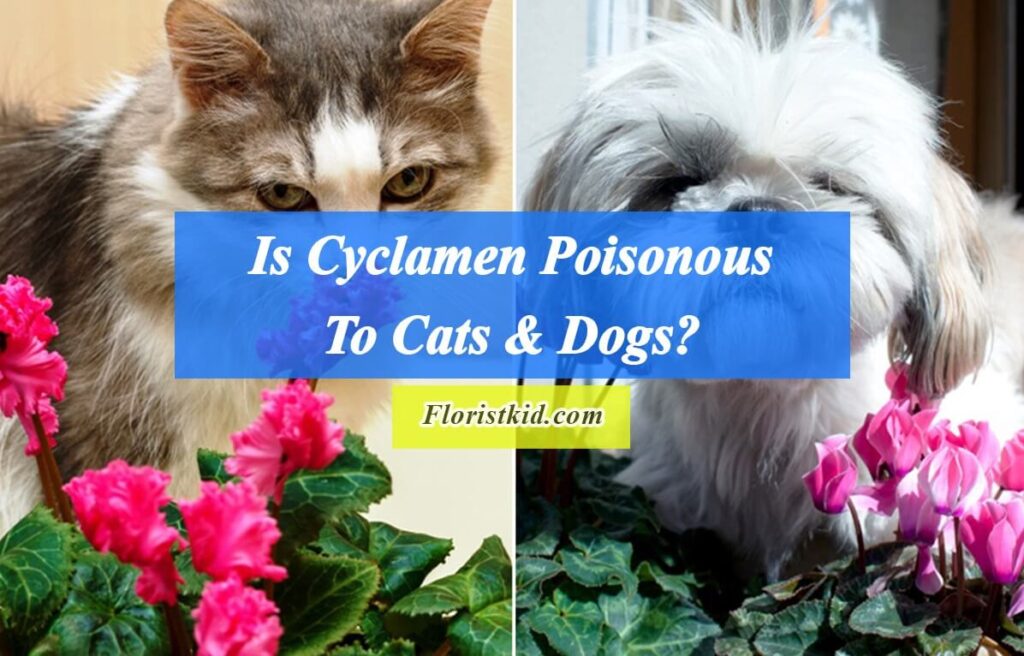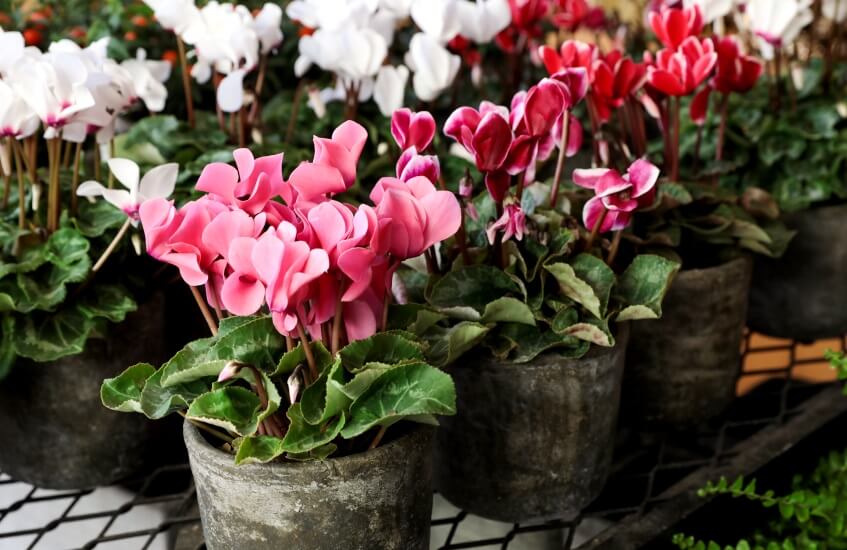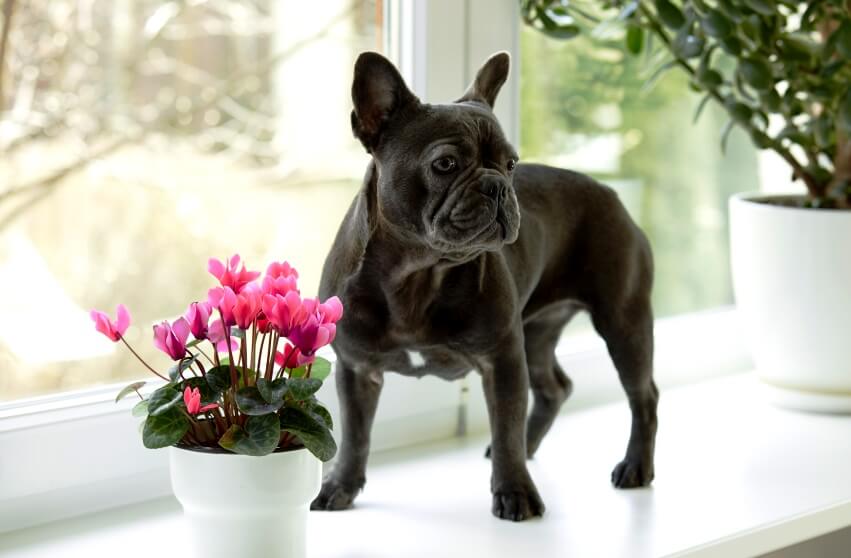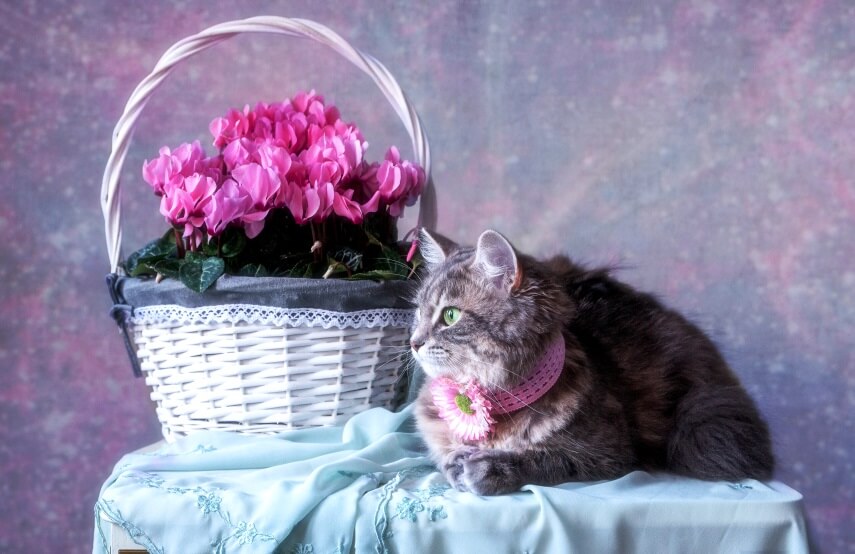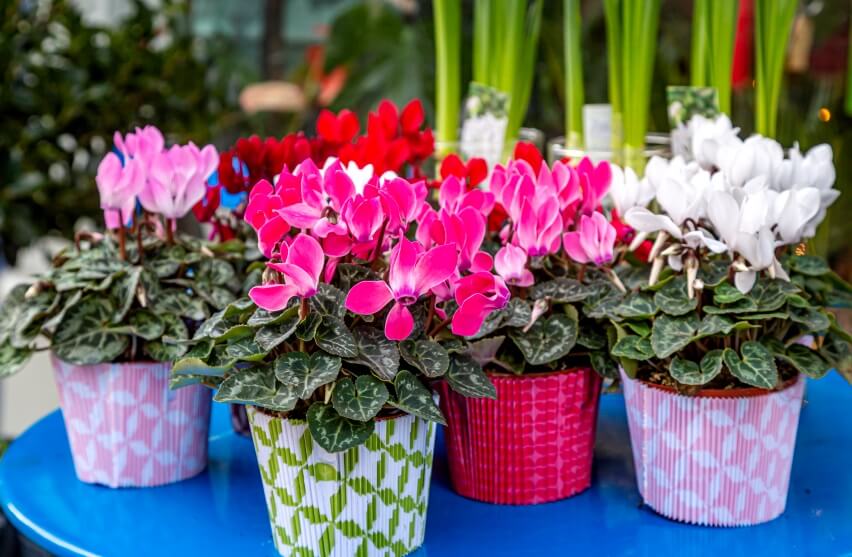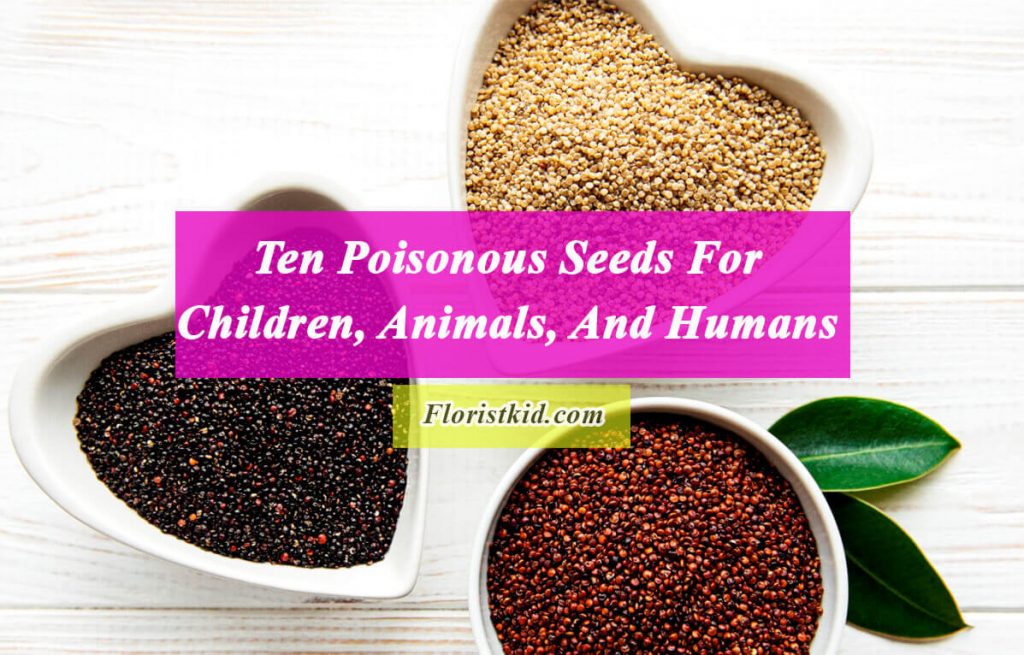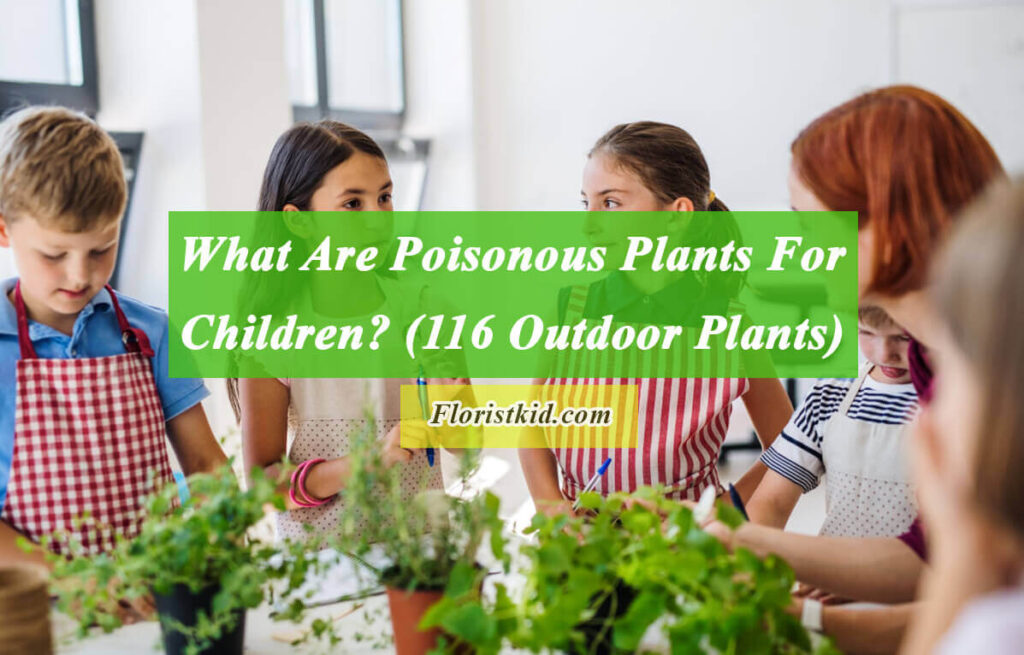Cyclamen plants (Cyclamen persicum), also known as Persian violet, shooting star, and sowbread, are widely available in florists, grocery stores, and retail establishments in the winter, making them a popular choice for adding color to your home during the gloomy season. These plants feature mixed heart-shaped leaves in dark and light green that have serrated edges. The flowers are white or pink and resemble butterflies.
Cyclamens are highly popular potted houseplants that can thrive in rock gardens in warmer areas. Although there is a small danger, this plant and especially it’s tubers could cause problems for home pets. Due to the significance of this topic, this article covers the traits, background, and toxicity of cyclamen plants for both people and animals.
If you are interested in this topic, you can also read
<<Are Sweet Peas Poisonous>> and <<Are Hyacinths Poisonous? >> articles.
About Cyclamen
There are about 20 species of Cyclamen, including Cyclamen persicum and its hybrids, which are native to the Mediterranean region and are now common houseplants. People have been associating cyclamens with romantic themes for centuries, making them an ideal Valentine’s Day flower.
This flowering houseplant has heart-shaped leaves on some cultivars. This plant has fragrant red, pink, white, or bicolor flowers with petals that flare backward, giving the flowers the appearance of shooting stars. The upper leaf surface of most cultivars has silver or grayish-white variegation, which adds decorative interest.
Cyclamen native habitat stretches from Europe and the Mediterranean to Iran in the east. The Cyclamen was a plant that the ancient Greeks used to make a dish that could make everyone who ate it fall madly in love. It was also thought to hasten childbirth and treat baldness [1].
This plant is a tuberous perennial; it dies down to its substantial roots (tubers) during the summer dormancy period and then quickly sprouts back each autumn. Flowers come in pink, purple, red, and white hues. Fruits are dehiscent capsules filled with many seeds.
Cyclamen is frequently grown indoors and is particularly well-liked during the winter holiday season. Planting seeds in the late summer will result in flowers in the following year’s winter. Cyclamen is toxic to both animals and humans [2].
Cyclamen And Toxicity
Terpenoid saponins, primarily glycosides of the cyclamiritens and cyclamigenins, are present in all parts of the cyclamen plant, particularly the tubers. Due to their irritating qualities, the saponins have the potential to be cardiotoxic. They can result in gastrointestinal issues such as salivation, vomiting, colic, and diarrhea [3].
Are Cyclamens Poisonous To Adults And Children?
Yes, Cyclamen persicum plants are poisonous to humans and children. However, a substantial amount of plant ingestion is needed to exhibit symptoms of poisoning in children. It is quite improbable that youngsters are poisoned since the majority of terpenoid saponins are concentrated in tubers, which are underground [4].
Animals are more at risk from this plant than people. In fact, a few cyclamen varieties are prized for their delicate flavor and usage in tea [5].
Is Cyclamen Toxic To Dogs?
Yes, Cyclamen is poisonous to dogs. Triterpenoid saponins, present in Cyclamen, are highly irritating to dogs and can potentially be toxic. Although the entire plant and blooms contain these saponins, the tubers (roots), which dogs may dig out of a garden or potted plant, contain the largest quantity of toxicity.
Dogs have easier access to these saponins throughout the winter because the plants and the pets spend more time indoors. Since these saponins are quickly taken into the blood, they might be even more hazardous than the typical poisonous flowers.
Is Cyclamen Toxic To Cats?
Yes, Cyclamen is toxic to cats. Cats who consume Cyclamen may experience symptoms such as vomiting, diarrhea, and heart rhythms, due to the presence of terpenoid saponins compounds in cyclamen plants.
Clinical Signs And Treatment
Most typical signs of poisoning are nausea, vomiting, and diarrhea. If great amounts of the plant are ingested, cardiac dysrhythmias and seizures could be observed. In most cases, all that is needed is supportive care for the vomiting and diarrhea.
Activated charcoal is frequently given to pets with cyclamen poisoning to induce vomiting and absorb the poisons. On occasion, drugs will be prescribed to hasten your pet’s recovery.

